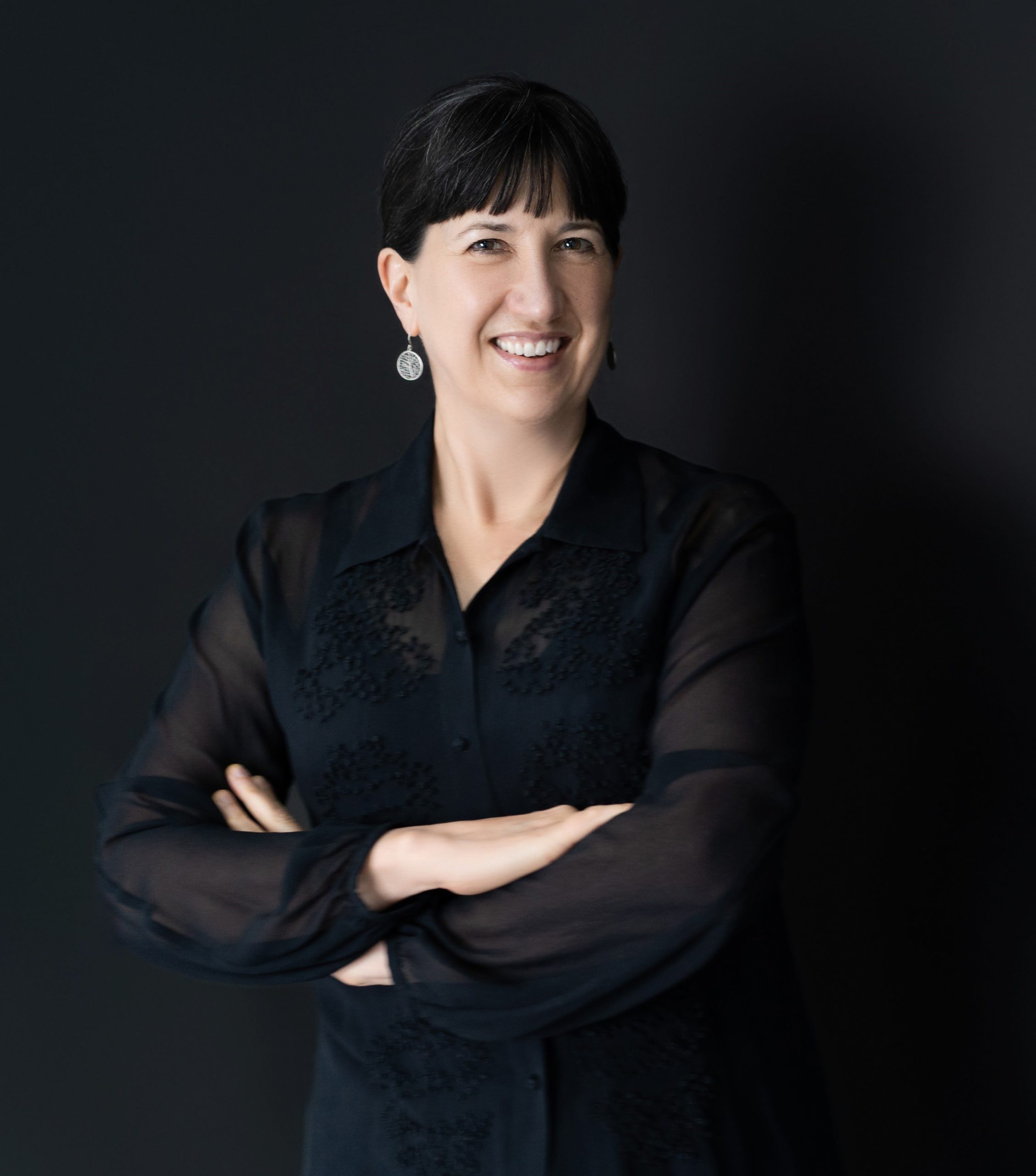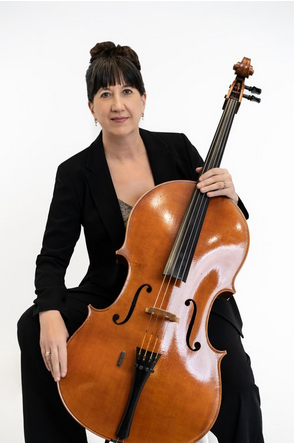People in the News
New Artist of the Month: Composer Nancy Ives
 PORTLAND—The sound of an immense volume of water rushing over a series of cascading falls in the Columbia River.
PORTLAND—The sound of an immense volume of water rushing over a series of cascading falls in the Columbia River.
The feel of the mist clouding the air and the eye of the Native-American hitting the heads of the salmon as they jump to clear the falls and swim upstream.
Both come to vivid life in Oregon composer Nancy Ives’s Celilo Falls: We Were There, performed to thunderous applause last month at the Siletz Bay Music Festival. It was commissioned and premiered two years ago by the Portland Chamber Orchestra and its late music director, Yaacov Bergman, also the founder and music director of the Siletz Bay festival. He had wanted to honor the indigenous Oregonians who lived on the coast for which the festival is named. He turned to Ives.
“I said yes, but I wanted a collaborator, so I would be in the role of storytelling. I wanted to create an orchestral setting that amplified the voices of Native-Americans.” So Bergman introduced her to poet Ed Edmo, a Shoshone-Bannock, and photographer Joe Cantrell, a Cherokee. The two showed her where Celilo Falls used to be—Edmo actually grew up nearby—before it was flooded in 1957 to create the Dalles Dam. That action robbed Native Americans not only of their livelihoods but of what had been their cultural home for millennia.
The result is an 11-movement multimedia history lesson, usually narrated if not by Edmo himself, then another indigenous American.
“I saw my grandpa fish,” he begins, as he describes how he grew up watching tribesmen, balanced on scaffolding overlooking the river, catch salmon in their nets and hit them on the head to stun them before killing.
A composer of her time
Ives, who in her other life is principal cello of the Oregon Symphony, has a strong interest in environmental and climate issues. One of her most recent pieces, Pando, commissioned and premiered by the Metropolitan Youth Symphony earlier this year, describes a wildfire threatening its namesake, the world’s largest tree, a quaking Aspen in Utah. Its success caught the attention of the Friends of Pando, a non-profit group dedicated to preserving the tree, and now she is their official artist-in-residence. It’s an assignment for which she will travel to Utah to create another piece. She sees it as a unique opportunity for music-science-and-environmental advocacy.
Ives comes from a musical family: her mother played violin and her dad loved barbershop singing so much that he became a judge at international competitions. “I heard a lot of barbershop tunes growing up,” said Ives, “and my family would sing in four-part harmony on road trips.”
She is also related to Charles Ives, her great-grandfather’s cousin. Not a bad pedigree.
 While earning her undergraduate degree in cello performance at the University of Kansas, Ives studied composition under Charles Hoag and then, encouraged by Harvey Solberger, headed to the Manhattan School of Music where she earned her Masters and Doctor of Musical Arts degrees in cello performance, studying with Marion Feldmann.
While earning her undergraduate degree in cello performance at the University of Kansas, Ives studied composition under Charles Hoag and then, encouraged by Harvey Solberger, headed to the Manhattan School of Music where she earned her Masters and Doctor of Musical Arts degrees in cello performance, studying with Marion Feldmann.
“Cello performance was my main focus although I kept writing music. Then I kind of fizzled out with composing. I didn’t think of doing both performance and composition like Jessie Montgomery or Joan Tower,” both successful in multiple realms. “I just hadn’t found my compositional voice.”
During the 1980s, Ives was heavily involved in the uptown scene in New York City with its emphasis on serial music. In the 1990s, she transitioned to the downtown scene, playing at venues such as the Knitting Factory and the Brooklyn Academy of Music’s Next Wave Festival. Along the way, she performed over 100 new works by such illustrious composers as Milton Babbitt, Chen Yi, and Bruce Adolphe. Her talent and versatility led to recordings on the Opus One and Koch labels and soundtracks for PBS and the Smithsonian.
In addition to her 25 years with the Oregon Symphony, Ives is also a member of the contemporary Fear No Music ensemble, the Palatine Piano Trio, and performs as a soloist in the region. She also co-founded Classical Up-Close, a series of free concerts that take place in various venues in early spring throughout the Portland metro area. Until recently, the heavy performance schedule has kept composition on the back burner.
Following through
“But I always knew I would come back to composing,” she said, “I was just waiting for it to happen. I had the sense of something knocking at the door, saying ‘you need to be doing this.’ I had ideas all the time, but I was too busy performing to follow through.”
In 2014, the Portland Cello Project commissioned her to write a piece using a snippet from a pop song by the late Elliott Smith. That turned into Shard Wisp Chunk for cello quartet, which emboldened her to seek a grant from the Regional Arts and Culture Council to commission six new pieces from Oregon composers, including herself.
“After writing an allemande, I started on another piece that involved some singing, which I realized was a sarabande. That sparked me to write the Suite for Cello and Vocal Obligato, which I premiered in 2019. That was the moment when I gained traction.”
Currently she is working on a violin concerto titled Immortal Beloved commissioned by a consortium of orchestras led by Northwest Sinfonetta. She describes it as giving voice to the women who might have been Beethoven’s “immortal beloved.”
“I get chills when I think about this idea,” said Ives. “Beethoven kept falling in love with women of noble birth, whom he could not marry. They were all prominent in the arts, and Beethoven dedicated some pieces to them. The class oppression went both ways. There is an emotional arc to their stories. I have a stack of books about this to immerse myself. I will use a musical cypher for their names—embedded into the music.”
With so much on her plate, Ives intends to take a sabbatical from performing in 2025-2026 to concentrate on composing. She also plans to start a publishing company and recording label for her music. In the meantime, the Oregon Symphony will perform Celilo Falls: We Were There in June of 2025 in an expanded version for full orchestra. That the piece has legs is especially fitting of the legacy of Charles Ives, who believed that American composers should write music inspired by the people and culture around them.





 FEATURED JOBS
FEATURED JOBS

 RENT A PHOTO
RENT A PHOTO


